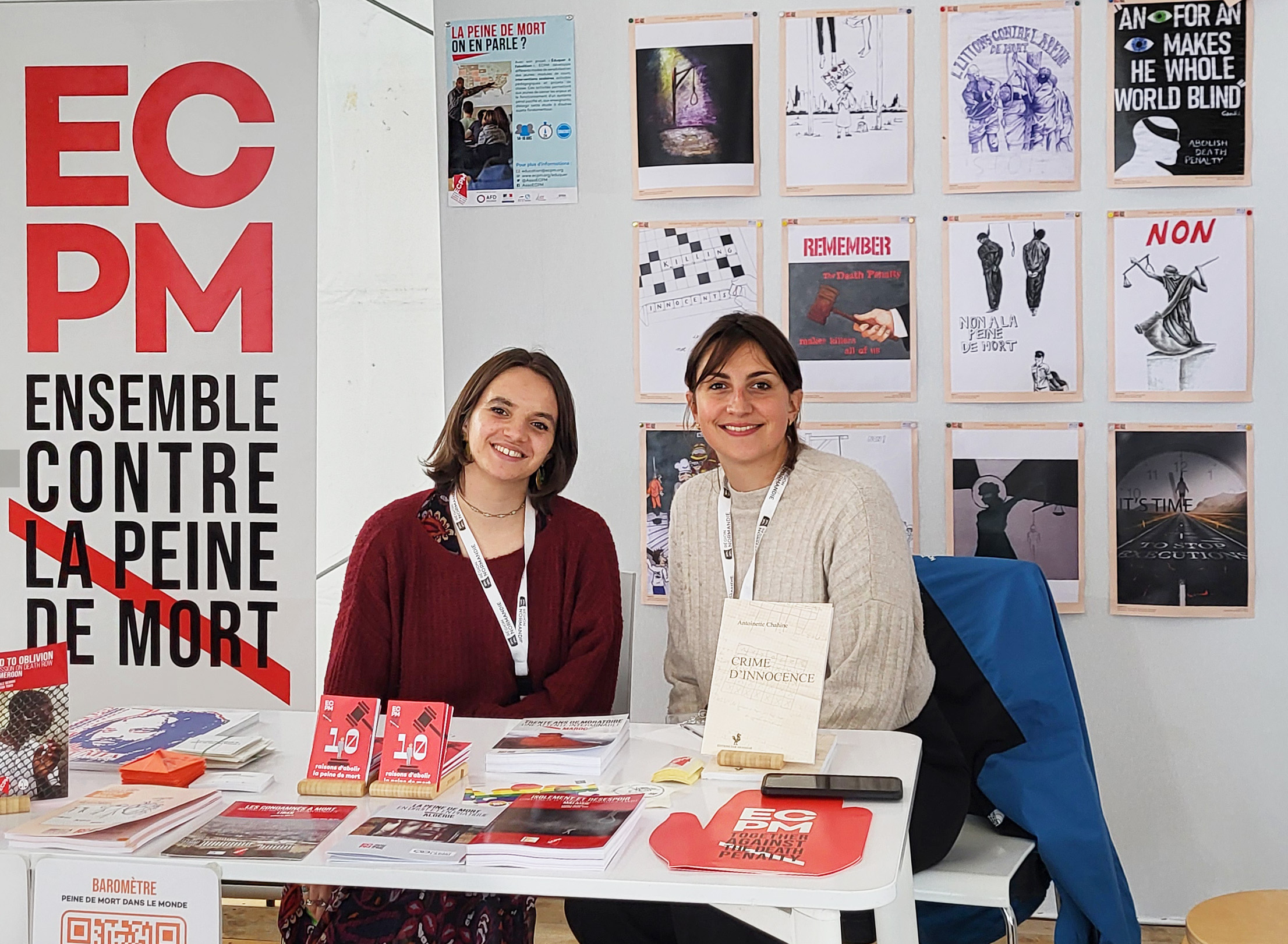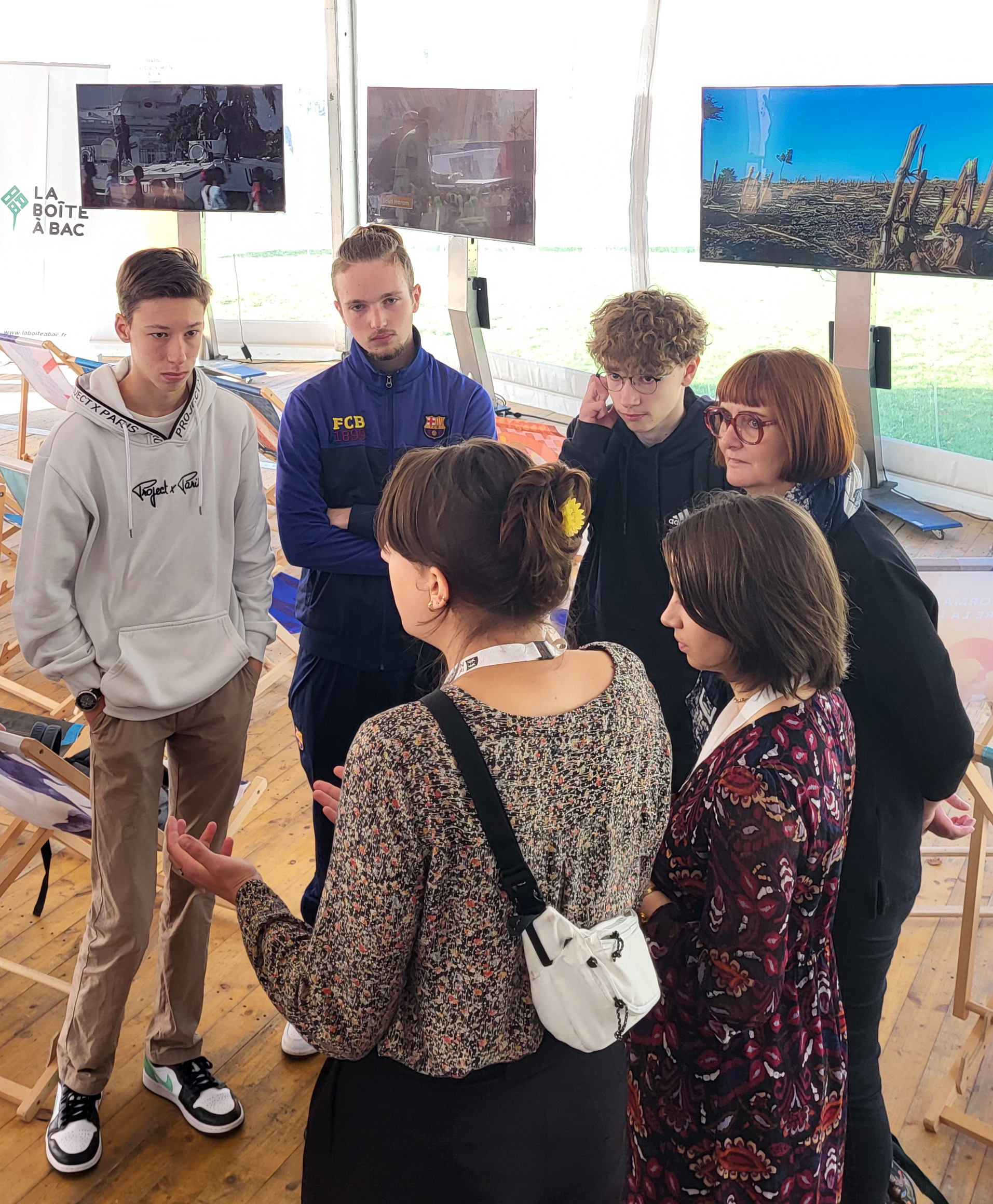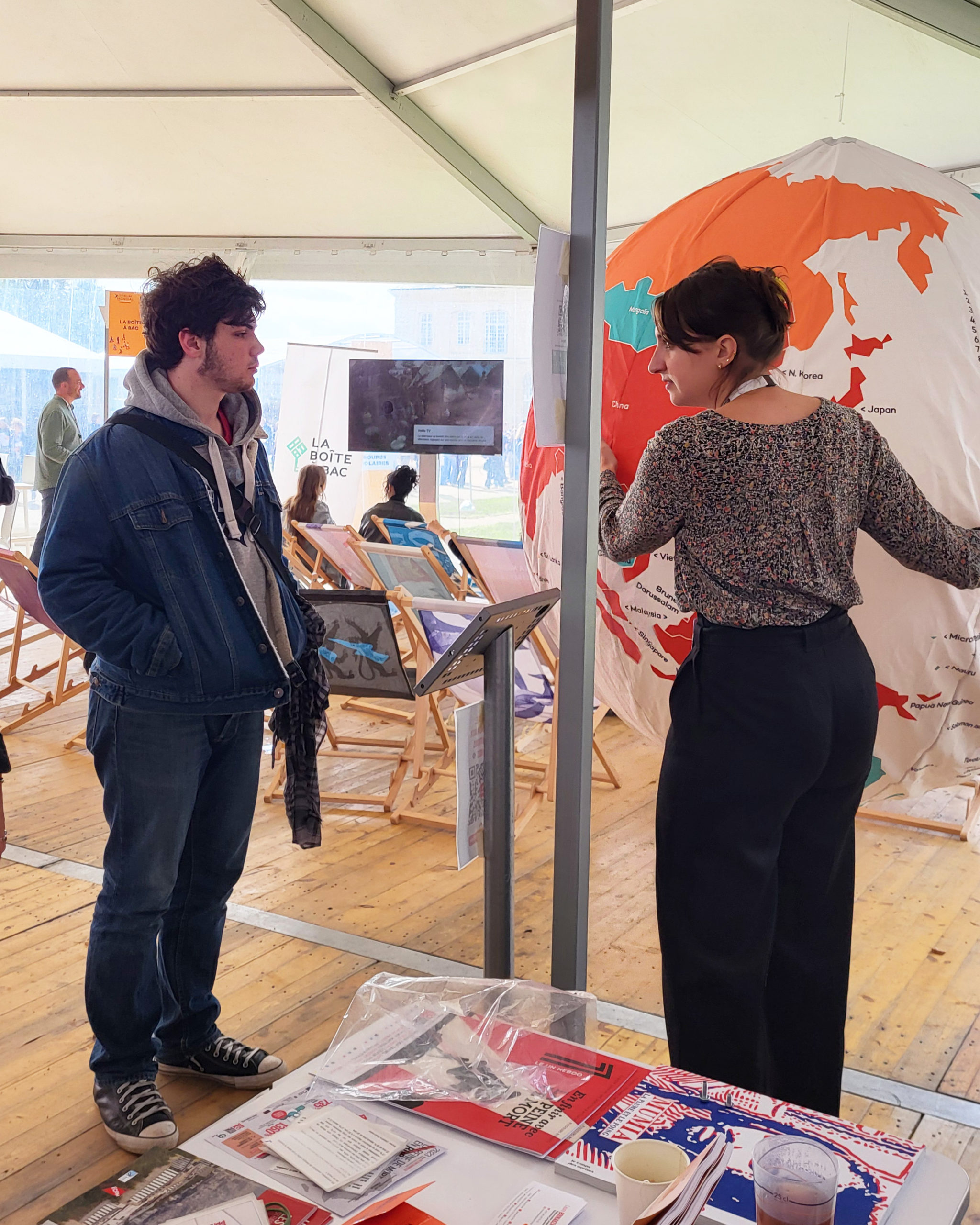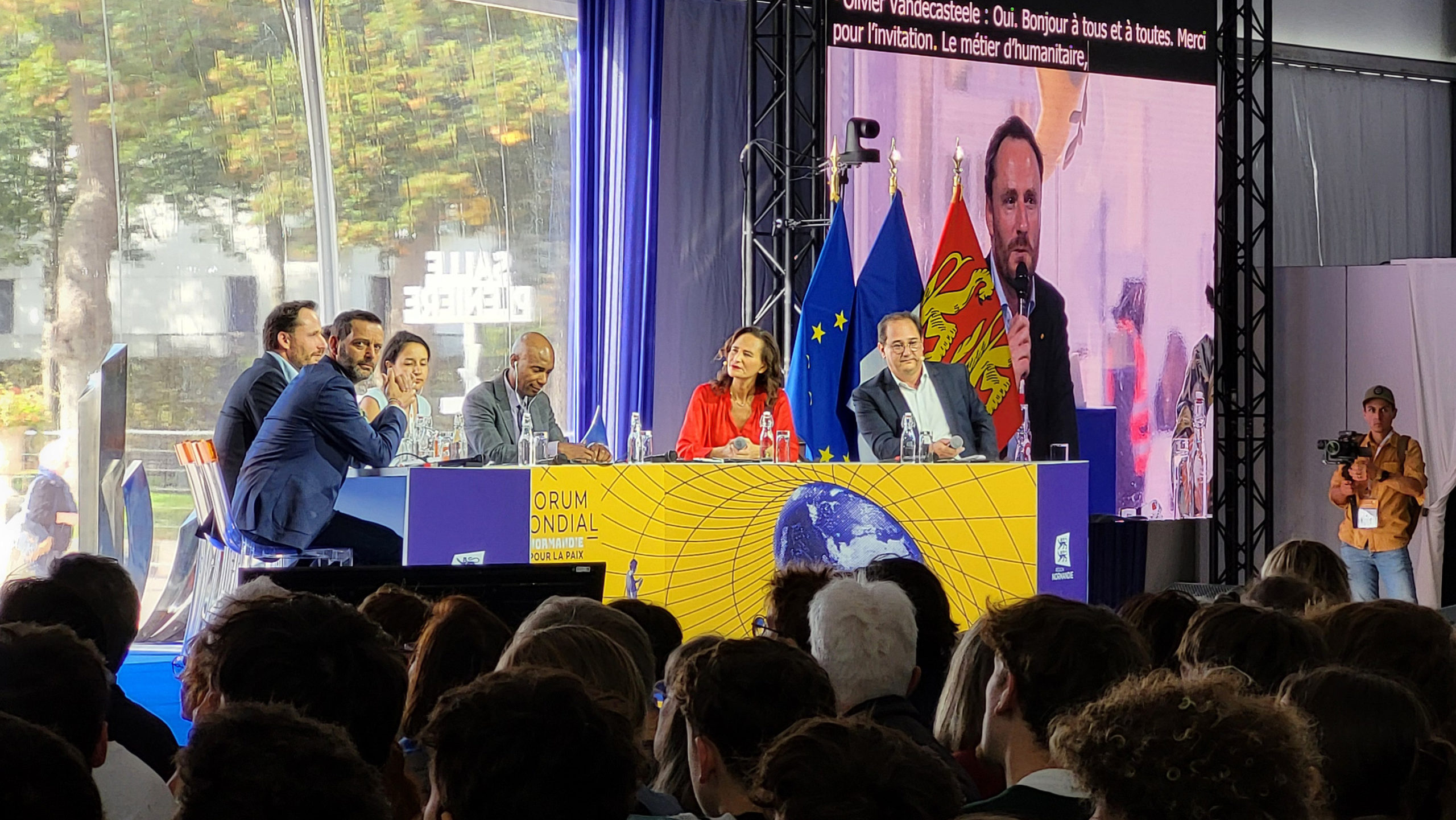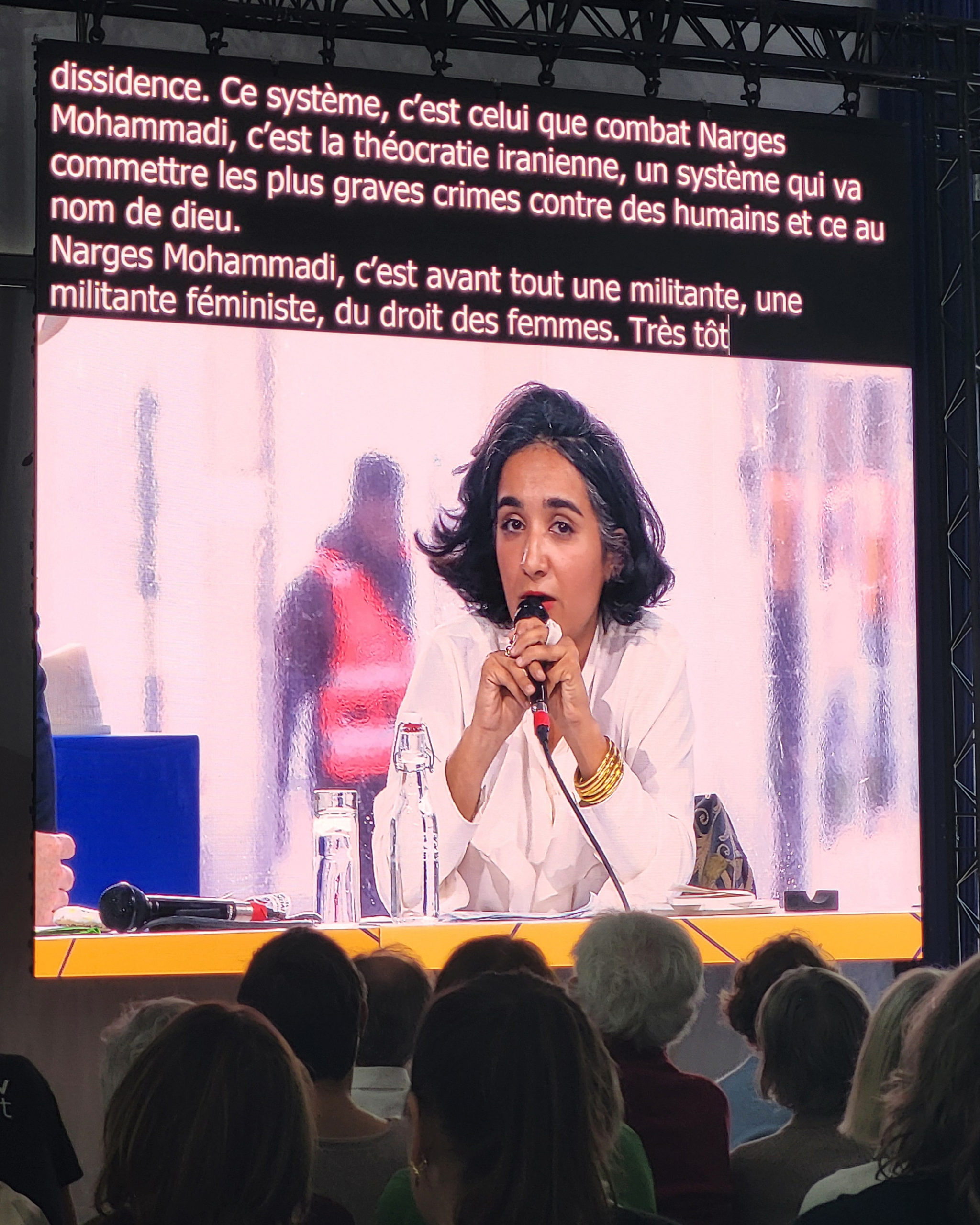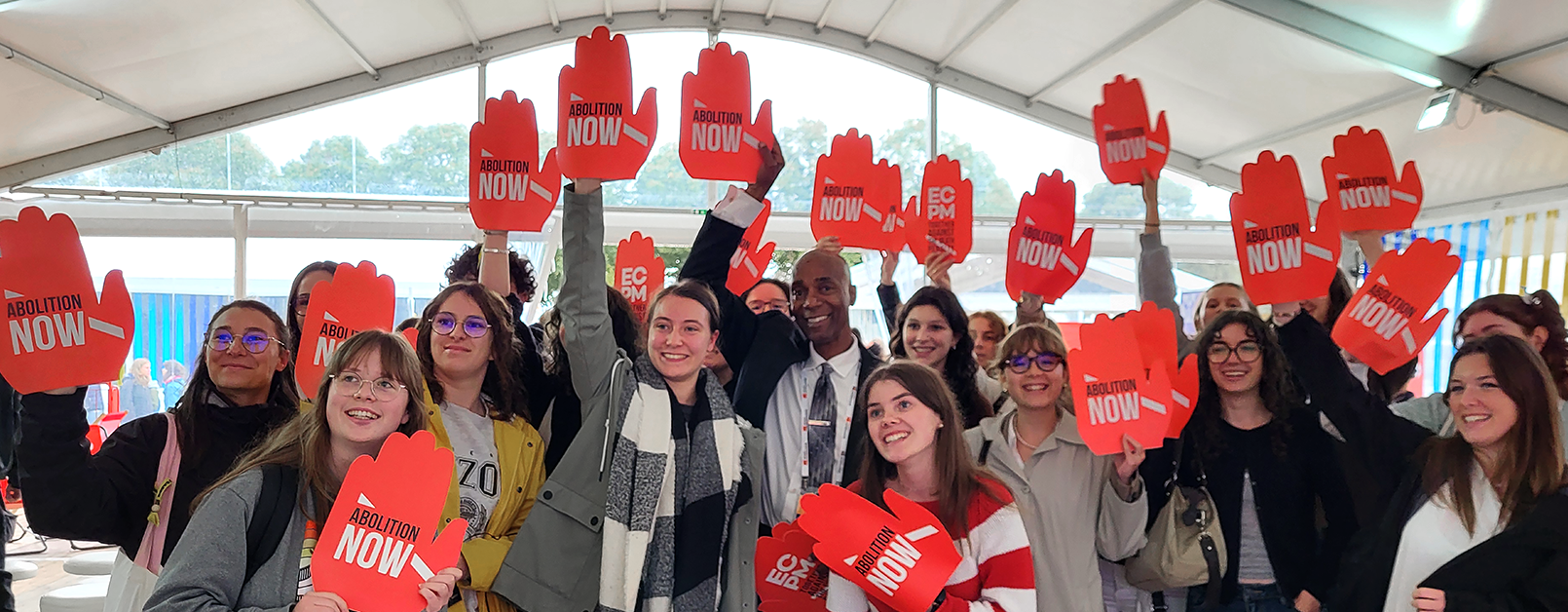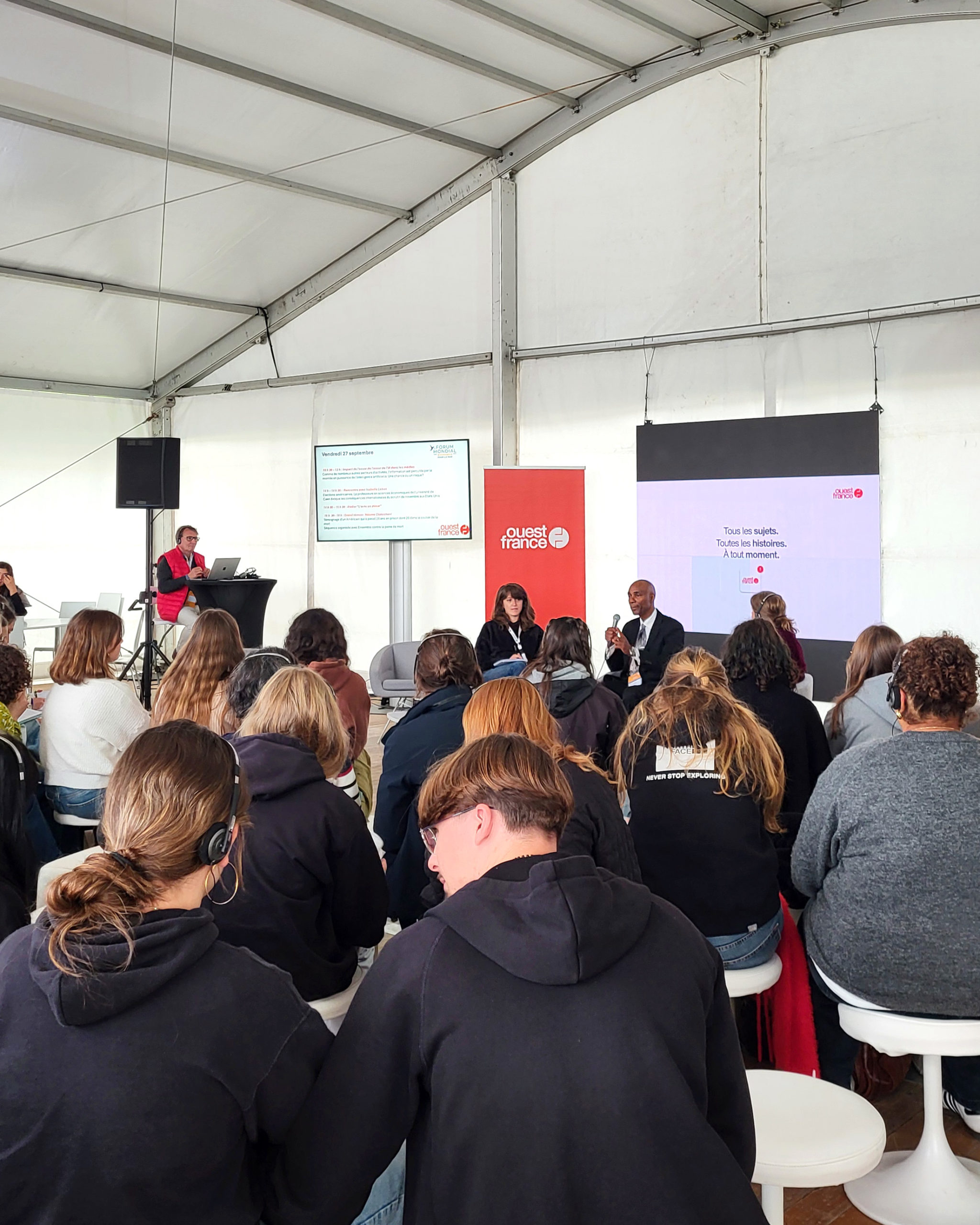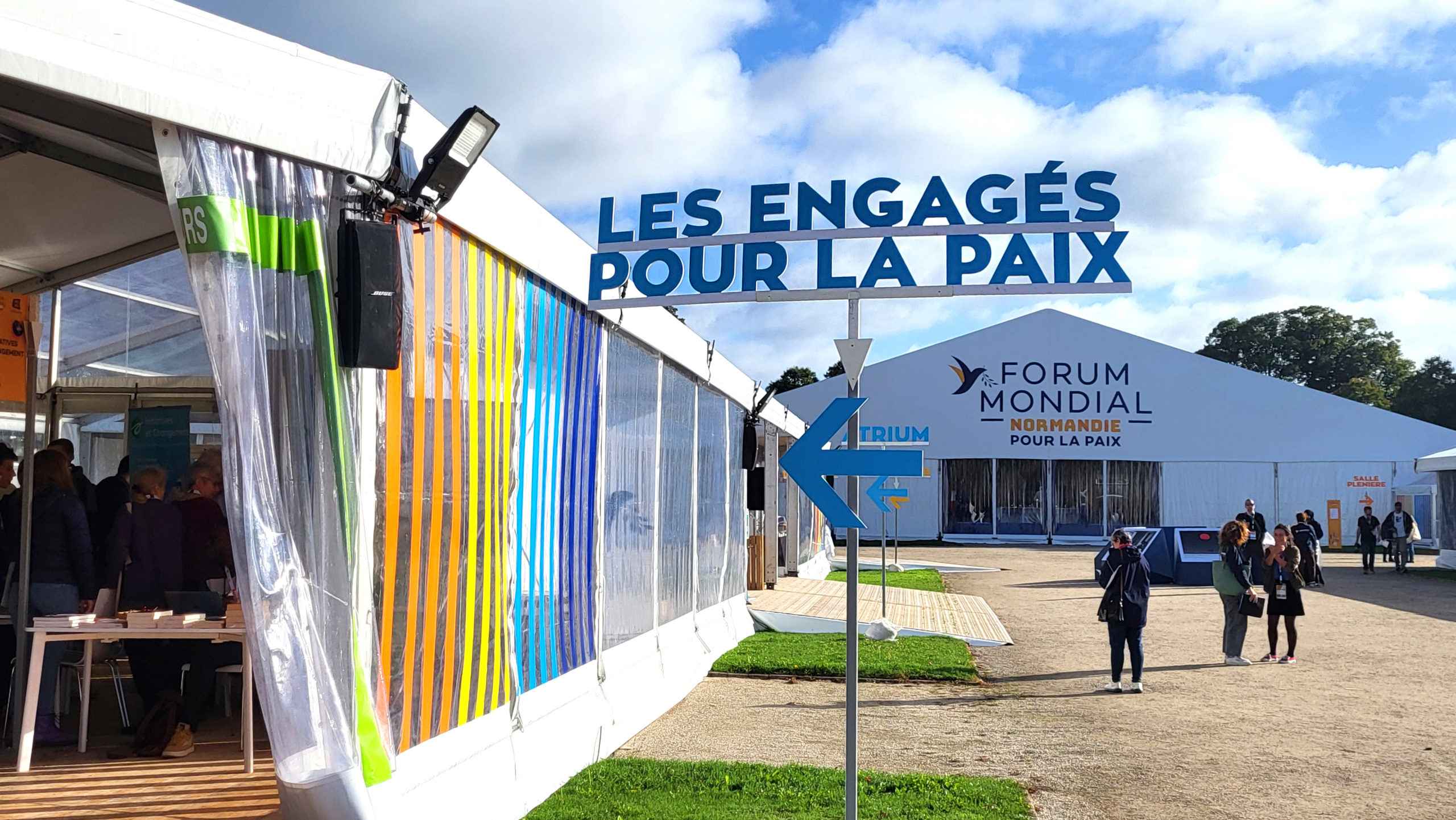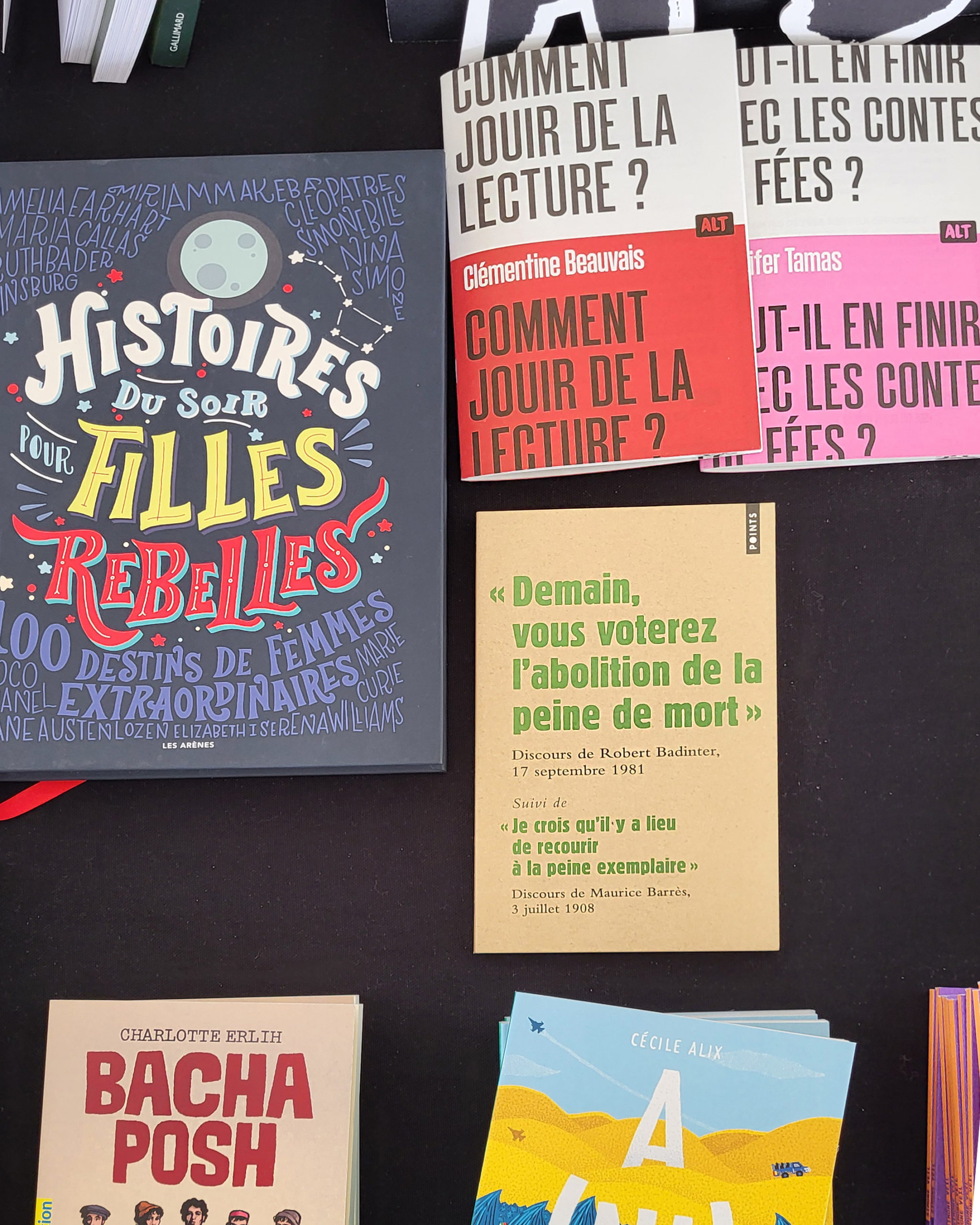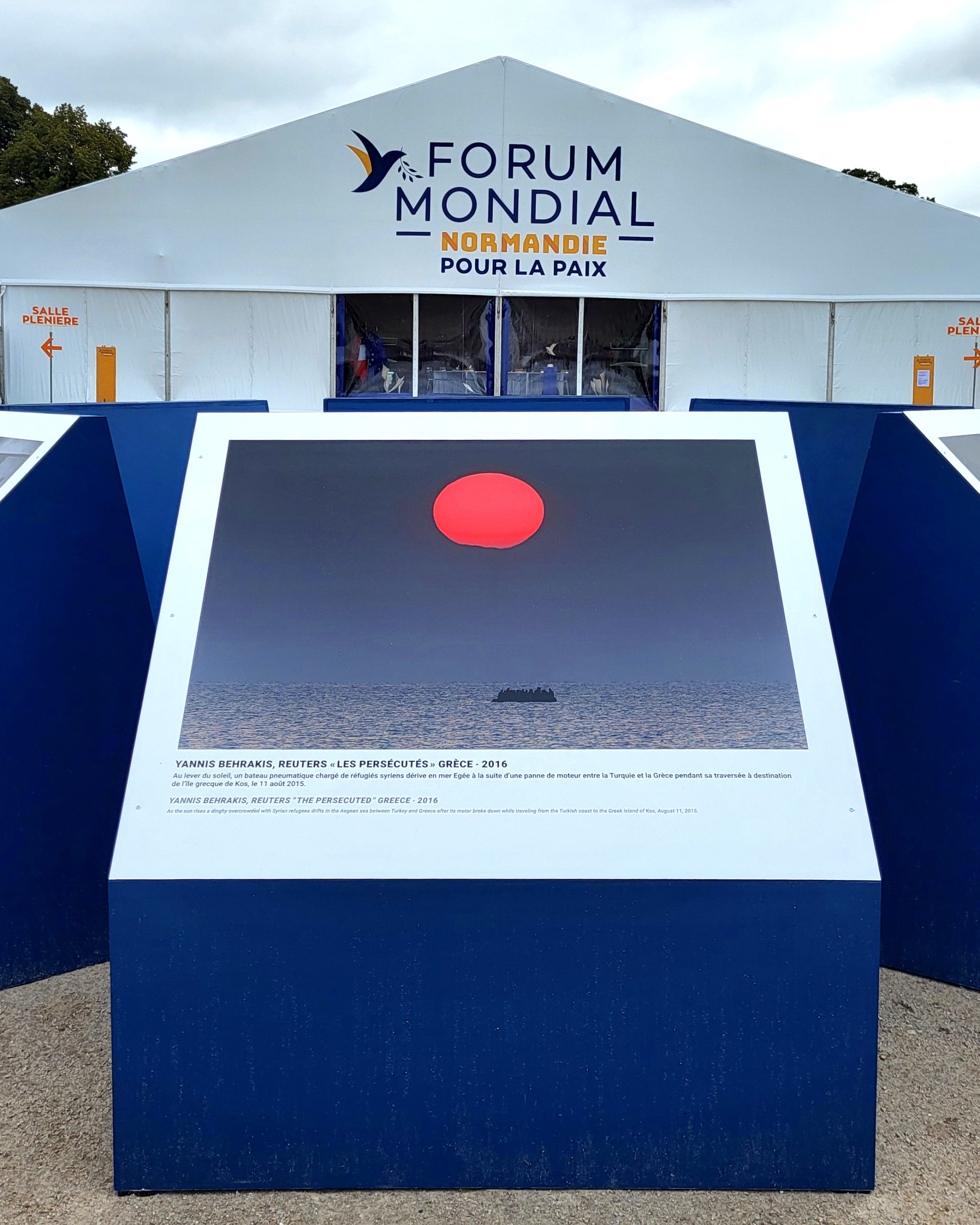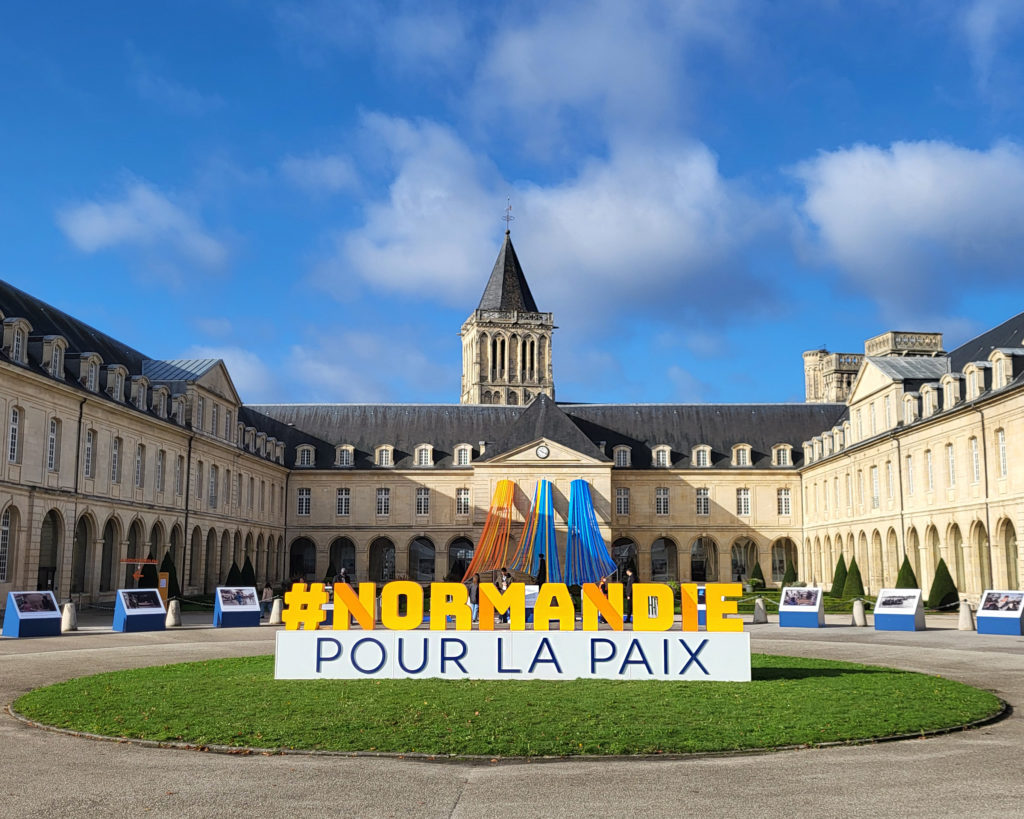
Raising awareness: the main objective of ECPM’s Education Team
The Forum welcomes thousands of students from all over the Normandy region to allow them to discover the work of several organisations for human rights in the Village for Peace. Thus, ECPM’s Team discussed with several classes with the help of diverse educative tools: games, interactive and printed tools. By using active learning methods, young people had the chance to discover or learn more about abolition and open the debate on the death penalty.
The main theme of the Forum being “How to win peace in the face of new violence?” the objective of ECPM was to explain the different aspects of the death penalty. Specifically, the fact that it is discriminatory, affiliated to torture, the different methods of execution used and the trauma endured by the convicted person and all the people linked to the execution process. At the booth, ongoing news on retentionist states (end of the moratorium in the Democratic Republic of the Congo) and the sudden rise in the number of executions (United States and Iran) were also discussed.
Ndume Olatushani: Great Witness and Defender of Freedom
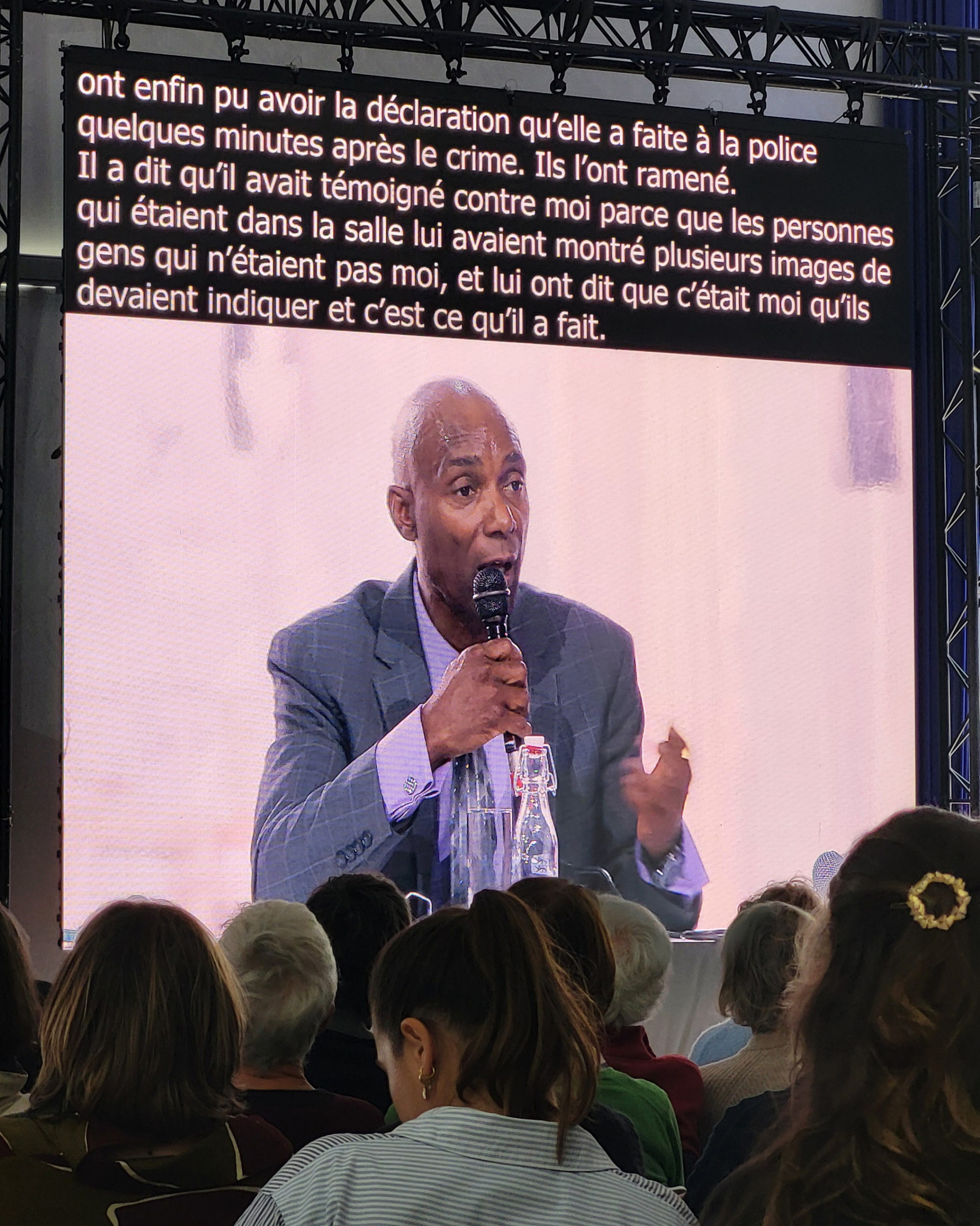
Ndume Olatushani, community artivist and former convict on death row in the United States, supported by ECPM, shared his story during several milestones of the Forum.
To begin with, during one of the key moments of the Forum during a plenary session called “Protecting the Defenders of Freedom”, alongside the testimonies of other great witnesses: Chirinne Ardakani, Bertha Zúñiga Cáceres, Édouard Perrin and Olivier Vandecasteele. Being humanitarians, journalists, environment activists or lawyers they all fight for human rights and justice, despite obstacles, threats and oppression. This was a moment full of emotion because of the moving reality of their testimonies and the inspiration they represented for the youth present at the plenary session. Moreover, it was also an opportunity to address the risks they face by being activists: threats, imprisonment, torture and even murder. As these risks impact directly the lives of these activists, their work requires a revaluation and better support before, during and after their missions.
Concerning Ndume Olatushani, after more than 20 years to prove he is innocent, he was proposed by the authorities of Tennessee to refer to the Alford Plea. The latter allows the freedom of the convicted person but does not establish any official acquittal and to an extent no financial compensation. When the death penalty is discussed with public opinion, the topics of rehabilitation and life after death row are not covered.
Then, Ndume delivered his testimony again in front of a student group, in the Agora Studio, a place in partnership with Ouest-France. All of them were captivated by his story and it helped them to have a better understanding of the challenges of the fight for universal abolition and the discriminatory side of the death penalty. The position of both political parties in the United States on the death penalty was discussed, with the presidential elections approaching. The students were particularly curious about the state of mind of Ndume regarding the American judiciary system and how he experienced the injustice he went through.
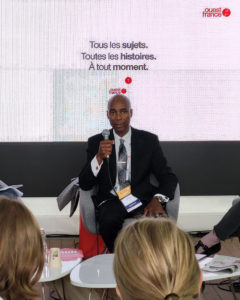
His story is an important example of the systemic racism within the American judiciary system. It particularly moved the students who wanted to know more about his spiritual and emotional progression and his resilience. Ndume made an emphasis on humanity, a value he never lost sight of. Indeed, he declared :
We still have more in common than different, even though we are all different. When you lose sight of this idea you lose your humanity.
Finally, he educated the audience on the prison conditions in the United States and how the American prison system tends to be an economic industry rather than a place of redemption. The latter is mainly endured by ethnic and racial minorities.
